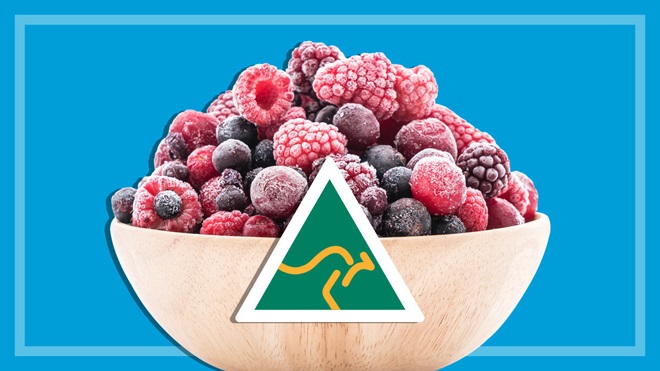Need to know
- Prior to 2016 unclear country of origin labelling made it difficult to determine where our food was coming from
- The issue gained national attention in 2015 after several cases of hepatitis A were linked to imported frozen berries
- More than 22,000 CHOICE supporters put pressure on former Minister for Agriculture Barnaby Joyce to call for revised country of origin labelling
Knowing where our food comes from is important to many of us. Whether it's about choosing local, supporting Australian farmers or reducing 'food miles', we need clear labels to help us make informed choices.
But until 2016, we saw many companies take advantage of lax regulation to provide unclear and unhelpful labels about where our food was made.
Here's our story of how thousands of people came together to put pressure on the federal government and win our campaign for transparent and fair country of origin labels.

Previous country of origin labels were vague – which ingredients are local and which are imported?
Confusing and unhelpful labels
Food companies are required by law to tell us where their food comes from – these are commonly called 'country of origin' labels. But until our campaign, we regularly spotted ambiguous statements like "Made in Australia from local and imported ingredients" or "Packed in Australia from imported ingredients" – which meant it was almost impossible for people to make informed decisions in the supermarket.
A catalyst for change: dangerous berries
Back in 2015, you may have read about dozens of Australians who contracted Hepatitis A after consuming frozen berries from Chile and China. Two popular brands were recalled but many frozen berries were still on supermarket shelves displaying labels like "Packed in Australia using imported fruit". These labels meant we couldn't tell where our food came from.
Thanks to public outcry, CHOICE launched a campaign calling on the then Minister for Agriculture Barnaby Joyce to take action. We asked thousands of people to write to the minister and share why they wanted to see country of origin labelling. Within just two weeks, more than 22,000 people had contacted him directly, and 18,000 shared our campaign on social media – putting the minister under serious pressure to respond.

Examples of how the improved country of origin labels look.
The minister responds
This upswell of community pressure worked. In response to people's emails, calls and comments, the minister responded, and even referenced passionate CHOICE supporters:
"Because I looked at my emails today and there were 22,000 emails there – 22,000… people are relying on this government to deliver."
Now it was time to shift to what these new proposed labels would look like. Over the next year, the government consulted with CHOICE experts alongside thousands of supporters, and together we gave detailed feedback about what consumers wanted to see on labels at the supermarket.
In 2016, just over a year on from launching this campaign, the government released the new country of origin food labelling scheme. The result? Companies were forced to provide clearer information about where their ingredients come from.

The improved labels make it easier to tell which products are made, grown or produced in Australia.
The revised labels are a huge step forward, especially for people who want to know how much of a product was manufactured or grown locally.
The biggest label changes are for products made, grown or produced in Australia. These now need to display a triangle logo with a kangaroo icon, a bar chart indicating the percentage of Australian ingredients, and text to explain whether the product was made, produced or grown in Australia.
Unfortunately, the labels don't require food companies to list where the main imported ingredients come from. But we now have a solid foundation to further improve labels and have called on companies to provide this information voluntarily.
What's next?
Every day, CHOICE supporters like you take action to make laws and business practices better for everyone. Whether it's signing a petition, filling in a survey or writing to your MP – everything you do counts. Change doesn't always happen overnight, but with sustained pressure and passion, we can win meaningful change on the issues that mean the most to you.
The government is currently reviewing Australia's country of origin food labelling system and CHOICE is making a submission to the review on behalf of consumers. If you'd like to include your thoughts on how country of origin labels on food and drink can be improved, please fill out this short survey.
We're on your side
For more than 60 years, we've been making a difference for Australian consumers. In that time, we've never taken ads or sponsorship.
Instead we're funded by members who value expert reviews and independent product testing.
With no self-interest behind our advice, you don't just buy smarter, you get the answers that you need.
You know without hesitation what's safe for you and your family.
And you'll never be alone when something goes wrong or a business treats you unfairly.
Learn more about CHOICE membership today
Stock images: Getty, unless otherwise stated.



